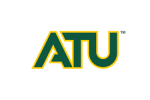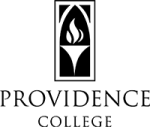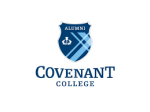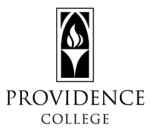Sociology is considered a social science, one that emphasizes its focus on the study of society, the human experience, social behavior/interaction, patterns of social relationships, as well as the cultural facets that impact everyday life.
What Will I Learn in a Sociology Program? (Curriculum)
Studying sociology is a degree that offers degree candidates both tangible and intangible skills.
The skills learned in a Bachelor of Arts (B.A.) degree in Sociology include research methodologies that include conducting data analysis, plus quantitative or qualitative analysis.
The core group of classes that form the backbone of the curriculum of a bachelor’s degree in sociology includes:
- Classical theories.
- Contemporary theories.
- Statistics.
- Research methods, and more.
Studying sociology improves students’ understanding of the following:
- The causes/reasons for social differences and social behaviors.
- The significance of social hierarchies and how social power impacts daily life.
- How individuals and groups are shaped by larger social forces.
- The role of social institutions and social structures.
A few of the available electives to those reaching for a B.A. in sociology include:
- Generalized sociology classes like social problems in society and social inequity.
- Specialized sociology classes like:
-
- Gender studies.
- Afro-Latinos.
- Race & ethnicity.
- Urban sociology.
- Social deviance.
- Public sociology, among others.
Degree candidates who have completed their coursework for a B.A. degree in Sociology will complete the program by completing a more experiential or applied capstone culminating class that may include some form of community involvement or a pre-arranged internship.
The Marketable Skills Gained When Completing a B.A. in Sociology Degree
While many consider a sociology degree a bit unmarketable in and of itself, the reality is the coursework prepares students not only for a variety of fields but for life itself.
Consider that degree graduates learn:
- Adept communication skills – reading, writing, & oral abilities.
- Critical thinking & analytical skills.
- Quantitative literacy & statistical reasoning skills.
- Research skills include the ability to review literature, collect data, & analyze data).
- Social skills with a unique ability to be culturally competent, empathetic, and communicative with individuals of all backgrounds.
How to Choose a Good Program
When you need to make a final decision as to which B.A. in Sociology program you will attend, it is important to consider the many facets that impact this potentially life-changing education choice.
Your degree decision includes the following:
- The university, college, or school’s reputation.
- The reputation of the sociology degree program you have chosen.
- The tuition and other education-related expenses.
- The class sizes and student/teacher ratios.
- For traditional programs, consider the location and facilities available on campus.
- For online sociology programs, check out the distance learning platform and program requirements.
Is Your Preferred Sociology Program Accredited?
The process of accreditation is a formalized process of quality assurance.
A school or program can be accredited, which means being evaluated against a set of predetermined standards.
Regional Accreditation
At the regional level, accreditation is the responsibility of one of the U.S. Department of Education’s regional accrediting agencies.
School accreditation is an important factor in determining the most suitable program in data analytics.
This is because accreditation affects earned credit transferability, plus a student’s ability/eligibility to qualify for financial aid from the federal government.
In addition to regional accreditation, institutions of higher education have the option to volunteer for specialized accreditation.
Specialized Accreditation
In the world of sociology, the two primary accreditation agencies include:
The Council on Social Work Education
The Commission on Accreditation within the CSWE is the professional organization that sets the accreditation standards for social work and sociology programs.
In 2022, there were 538 accredited programs at the bachelor’s level.
The Commission on the Accreditation (COA) of Programs in Applied & Clinical Sociology (CAPACS)
CAPACS seeks to accredit programs based strictly on learning outcomes that display an integration of sociological theories.
Online vs. On-campus Sociology Degree Programs
The education community now offers a wide variety of online educational choices – especially in the field of sociology and social work.
These distance-learning options in sociology offer degree candidates added convenience, flexibility, and often a tuition rate below on-campus alternatives.
How Long Does It Take to Earn a Bachelor’s in Sociology?
A sociology baccalaureate degree program typically requires students to complete 120 to 128-semester credits.
In schools that choose to follow a quarter-credit system, the typical requirement for a B.A. in Sociology is 180 credit units.
A bachelor’s degree in sociology will take four years to finish unless you select a program that offers an accelerated track or you have transferrable credits which meet the eligibility requirements for the school offering the sociology degree program.
How Much Does it Cost to Get a Bachelor’s in Psychology?
The cost or expense of earning a sociology degree at the bachelor’s level will vary according to a number of relevant factors – your choice of school, the delivery method of the sociological program, and the academic program you wish to attend.
If you need to keep educational expenses to a minimum, consider these valuable insights:
- Take your general education requirements at a local community college, where the tuition is likely to be reduced. When you have completed the first two years of your studies, you then have the option to transfer the earned credits for your junior year. Many public institutions of higher learning have combination programs that encourage students to follow a community college to a four-year public university.
- Consider attending a public school in the state in which you reside. The average annual tuition expense for an in-state student (at a public higher learning institution in their home state) was $9,349, whereas the tuition for out-of-state students at those same schools was $27,023 per year. To put some perspective on the variance of tuition fees, consider that tuition/fees at a private university was $37,641 per academic year.
- Consider a B.A. in a Sociology degree program that is either delivered exclusively online or as part of a hybrid program because these tend to offer a reduced cost of earning the degree. Not only are per credit fees less, but there is also no need to spend time/money/effort to travel to and from campus to attend class. Some even offer students an accelerated study track, which reduces education expenses.
- Does previous work or military experience count toward academic credit requirements? Some schools have programs in place that offer credit for life/work/military experience.
It is also essential to remember that if you need federal financial aid, students must select an accredited degree to be eligible.
Sociology degree programs and the schools that offer them may also provide scholarships for their enrolled students.
What Can I Do With a Bachelor’s in Sociology?
A sociology degree program offers students a well-rounded education with important skills that can be applied successfully to a number of careers and industries – often focused on social services.
In addition to fine-tuned analytical and critical thinking skills, a sociology degree major will also refine their communication skills, statistical reasoning abilities, social skills, and the ability to conduct and evaluate research data.
The following is a partial list of possible job/career areas for those with a bachelor’s degree in sociology:
Social Services
This type of occupation includes a variety of socially related responsibilities:
- Rehabilitation.
- Case management.
- Group work with young people or the elderly.
- Recreation or administration.
Community Work
This type of occupation includes fundraising for nonprofits, social service organizations, and environmental, childcare, or community development agencies.
Business Administration or Management
Business, in general, offers a large variety of employment options that include:
- Advertising.
- Marketing.
- Consumer research.
- Insurance.
- Real estate.
- Personnel work.
- Training.
- Sales.
College & Postsecondary Settings
Working in higher education with a sociology degree offers employment in the school’s admissions process, or alumni relations, among others.
Health Services
Health services employment options include family planning, counseling, health planning, substance abuse, hospital admissions, rehab, and even insurance companies.
Publishing, Journalism, & Public Relations
These sectors of the economy offer a plethora of options in the areas of writing, research, and editing.
Government Services
Federal, state, and local government agencies and offices also offer great job options for those who earn a sociology degree.
Consider the areas of housing, labor, agriculture, transportation, etc.
Teaching
While this will require becoming certified as a teacher in the state in which you teach, it is a viable career path for a sociology major.
Should I Get a Bachelor’s in Sociology?
As a social science, the field of sociology studies human interactions within groups, communities, cultures, organizations, and society.
The skills gained in a sociology program open various career tracks and help students better understand their own life/motivations.
If you are interested in human behavior and the many perspectives of social interaction, a B.A. in Sociology is likely to be a great option for your future.
Best Sociology Schools by State
Alabama
Alaska
Arizona
Arkansas
California
Colorado
Connecticut
Delaware
Florida
Georgia
Hawaii
Idaho
Illinois
Indiana
Iowa
| Rank | School | |
|---|---|---|
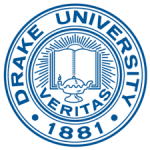 |
#1 | Drake University |
 |
#2 | University of Iowa |
 |
#3 | Cornell College |
 |
#4 | Iowa State University |
 |
#5 | University of Dubuque |
 |
#6 | University of Northern Iowa |
 |
#7 | William Penn University |
 |
#8 | Mount Mercy University |
 |
#9 | Graceland University |
 |
#10 | Briar Cliff University |
Kansas
Kentucky
Louisiana
Maine
| Rank | School | |
|---|---|---|
 |
#1 | Bowdoin College |
 |
#2 | University of Southern Maine |
 |
#3 | University of New England |
 |
#4 | Bates College |
 |
#5 | Colby College |
 |
#6 | Johns Hopkins University |
 |
#7 | Southern New Hampshire University |
 |
#8 | University of Delaware |
 |
#9 | Amherst College |
 |
#10 | Trinity College |
Maryland
Massachusetts
Michigan
Minnesota
Mississippi
Missouri
Montana
Nebraska
Nevada
New Hampshire
New Jersey
| Rank | School | |
|---|---|---|
 |
#1 | Rutgers University-New Brunswick |
 |
#2 | Montclair State University |
 |
#3 | College of New Jersey |
 |
#4 | Kean University |
 |
#5 | Rowan University |
 |
#6 | Rider University |
 |
#7 | Centenary University |
 |
#8 | Monmouth University |
| #9 | Hunter College | |
 |
#10 | New York University |
New Mexico
New York
| Rank | School | |
|---|---|---|
 |
#1 | New York University |
 |
#2 | Cornell University |
 |
#3 | Colgate University |
 |
#4 | Syracuse University |
| #5 | Hunter College | |
 |
#6 | Monmouth University |
 |
#7 | Rider University |
 |
#8 | Haverford College |
 |
#9 | Hamilton College |
 |
#10 | Rutgers University-New Brunswick |
North Carolina
North Dakota
Ohio
Oklahoma
Oregon
Pennsylvania
Rhode Island
South Carolina
South Dakota
Tennessee
Texas
Utah
Vermont
| Rank | School | |
|---|---|---|
 |
#1 | University of Vermont |
 |
#2 | Middlebury College |
 |
#3 | Castleton University |
 |
#4 | New York University |
 |
#5 | Brown University |
 |
#6 | Southern New Hampshire University |
 |
#7 | Colby-Sawyer College |
 |
#8 | Rivier University |
 |
#9 | University of South Maine |
 |
#10 | National University |





































